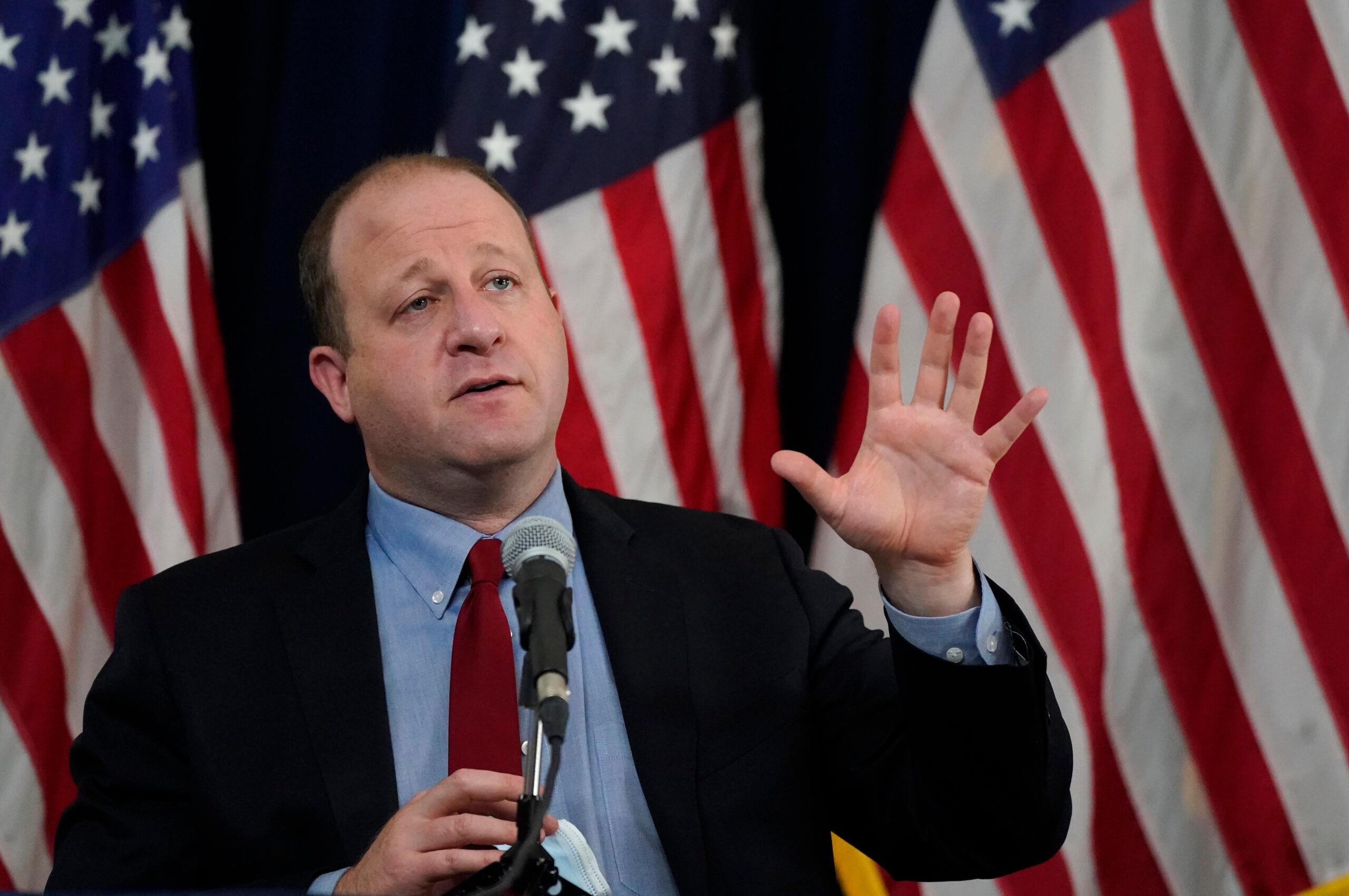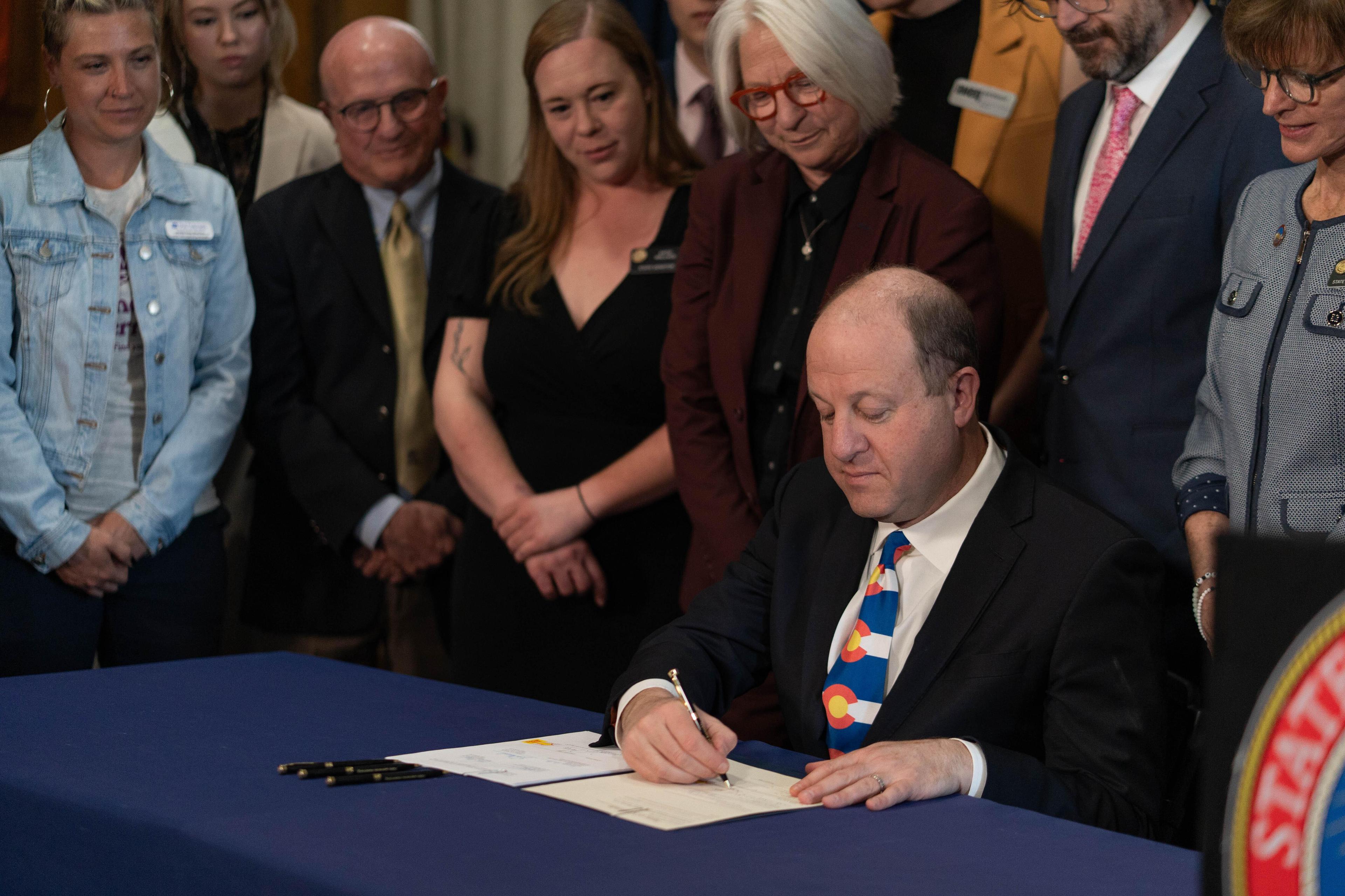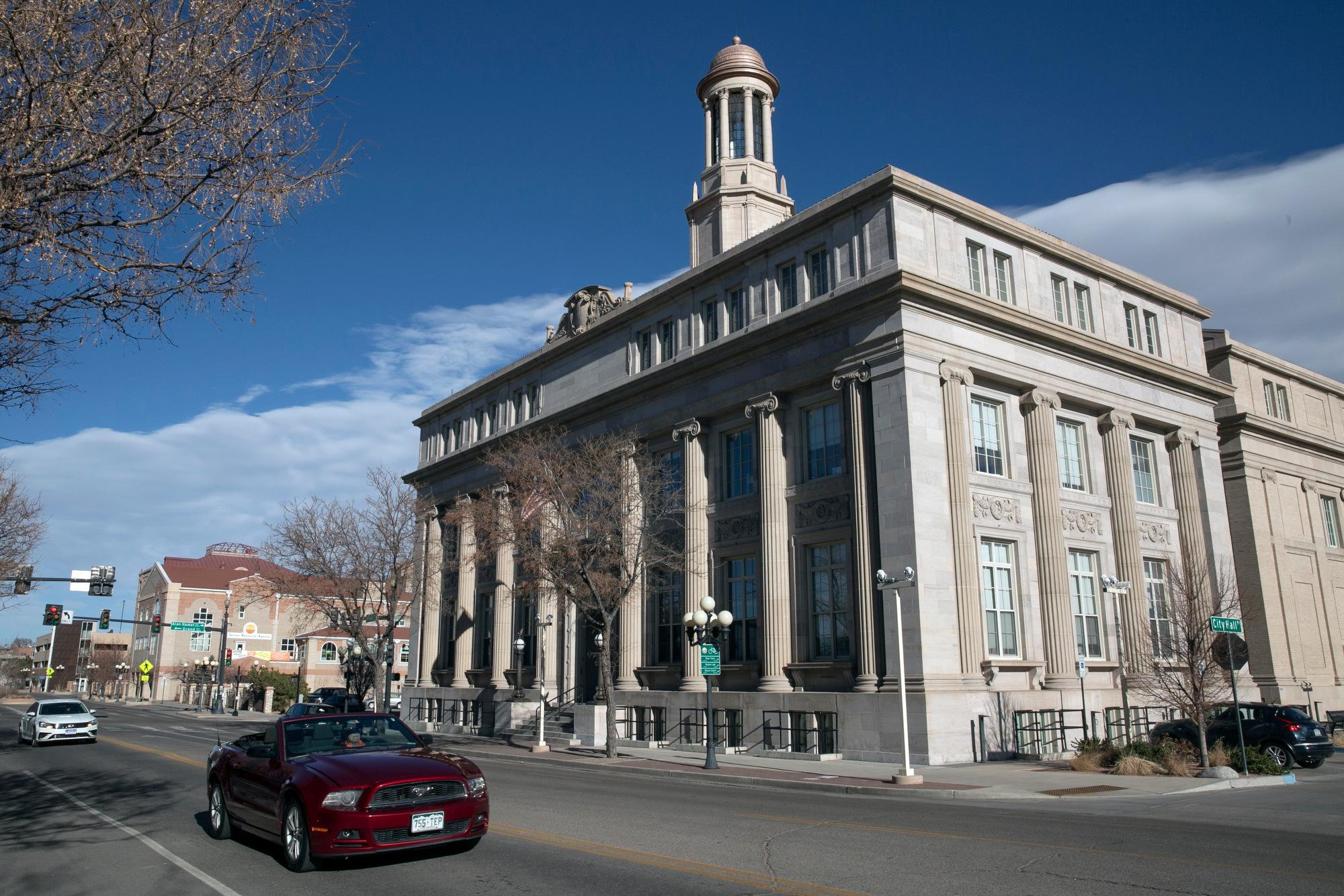
Governor Jared Polis unveiled his proposed budget for the 2021-2022 fiscal year Monday morning. The spending plan includes significant funds for economic stimulus in response to the COVID-19 pandemic.
Colorado's budget process allows the governor to present his spending priorities. But much of the power lies with the legislature, which will hash out a final package before it becomes official next spring. The new budget year starts on July 1, 2021.
Polis' proposal includes an economic stimulus package totaling $1.3 billion, with $220 million budgeted to create jobs and invest in transportation and infrastructure projects, and another $140 million to incentivize business growth.
"This budget isn't just about getting back to where we used to be," Polis said as he presented the plan Monday. "That wasn't good enough. It's about taking this challenging time to utilize lessons learned and boldly forge a path that positions our state for the future in a more equitable way, by making key strategic investments to show that we build back stronger, more inclusive, and more resilient."
Overall, this budget would increasing spending significantly over the current year. The state is able to do that because budget cuts this spring during the first phase of the pandemic were more severe than they ended up needing to be.
Lawmakers cut hundreds of millions of dollars from the budget that ended in July, and then reduced spending by a draconian $3.3 billion for the current year, although some of those cuts were offset by federal CARES Act money.
Those cuts were made based on expected tax revenues, which the state predicted would take a huge hit from the pandemic shutdowns. But those predictions turned out to be more dire than reality, and tax money is now coming in at a faster clip than projected.
"We bounced back a little faster, a little more than we expected," said Polis' budget chief, Lauran Larson.
However, tougher times are likely ahead. Once the one-time savings from this year are spent, the Governor's office projects an annual operating budget deficit through 2023.
To prepare for that, Polis said the budget will restore funding reserves to "historic levels" to prepare for future economic uncertainty.
"Investment in a robust and rapid recovery, coupled with strong reserves is the best way to ease budget pressure in future years," Polis said.
In response to the pandemic, Polis is proposing $38 million to promote health equity and social justice, to increase access to behavioral health and improve Colorado's readiness for future disease outbreaks.
"This epidemic has exposed many of the weaknesses in our system and forced us to think about the ways that we can all do better," he said.
The budget plan would also restore some cuts that were made due to the pandemic recession, particularly for K-12 and higher education. It would boost K-12 school funding by $902 per student.
In response to the historic fires burning in the state, Polis also includes $78 million for wildfire relief, mitigation and prevention.
Most of the land affected by the fires this summer was federal land, Polis said, "But the forest management practices are an area that the federal government in partnership with our state frankly needs to step up."
The governor will officially present his spending plan to the legislature's Joint Budget Committee later this month. He may have to adjust it depending on the outcome of Tuesday's election. Voters could approve an income tax cut that would reduce next year's state revenues by $150 million dollars. They are also voting on a potential nicotine tax increase that could bring in several hundred million new dollars, which at first would be earmarked to offset pandemic-related budget cuts.








